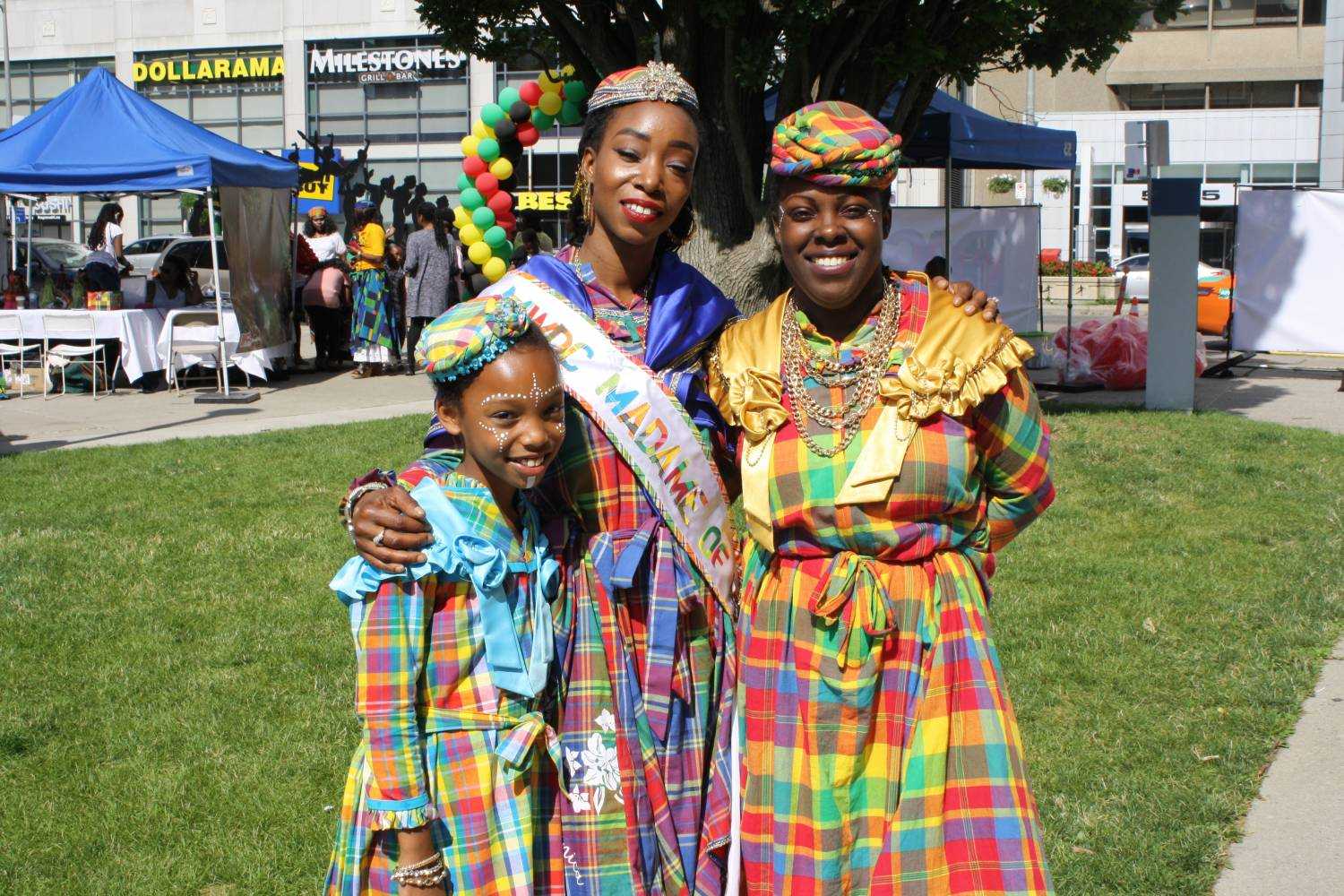BY: ALYSSA MAHADEO
While Toronto offers a myriad of prospectively fun summer festivals, this season is an exciting time for many city dwellers as they get to spend time outdoors, try something new, and enjoy the vibrant thriving culture, and diversity that brings us together as a community.
Popular amongst many is the annual food and street festivals that take place under the sun bringing chefs and cuisine options from across the world for us to try.
Last weekend on July 15th, Mel Lastman Square on Yonge Street was host the first ever Taste of Dominica!
Often mistaken for the Dominican Republic, Dominica is a mountainous Caribbean island nation with natural hot springs and tropical rainforests located between Guadeloupe and Martinique in the Caribbean Sea.
In celebration of their cuisine and their culture, the Dominican Arts and Culture Exposé (DACE) invited the public to this free family friendly event to enjoy a small taste of what the island of Dominica has to offer. Dominica emphasizes respect and appreciation for the unspoiled nature of the island, and this is reflected in the use of local ingredients in island cuisine. Some dishes, such as agouti, and manicou, which are made from local rodents, have guests turning up their noses; while local produce such as guava and various citruses are so delectable that guests are left wanting more.
The square was filled with the mouthwatering aromas of Caribbean street food with chefs from throughout the Caribbean islands offering samples of popular dishes from Dominica including codfish and bake, fried chicken, souse and the national dish of Dominica callaloo soup. Like many Caribbean islands, there is a great emphasis on fish. Starchy vegetables are very popular as are plantains, and these can accompany a meal or be made into a snack.
“The express purpose of organizing this event was to showcase Dominica cuisine and also give it more exposure here in the GTA because many confuse it with the Dominican Republic.” shared Mitchel Paul CEO & Executive Chairman of The Board of Directors at DACE.
“Trinidad and Dominica share similar cuisine and style of cooking, but like many of the other islands they strive to create an identity of their own.”
In addition to the Dominican food, attendees were able to enjoy other Caribbean dishes brought by chefs from the surrounding islands including jerk chicken, festivals, roti, and pelau.
“This was the first event of its kind for this island and all we did pretty well for our first year with over 2,000 people passing through.” said Paul. “I felt that it would be a good way to celebrate our cuisine and allow our Caribbean brothers and sisters to take part and showcase their culinary skills as well.”
They couldn’t have asked for more beautiful weather, and patrons who attended the Taste of Dominica were able to enjoy a fun filled event with food, fashion, arts, crafts, music and audio visual representations of the nature island of the Caribbean.
Taste of Dominica was designed to lay the foundation for 2018. They did well for themselves and next year they hope to build a bigger and better event through more marketing promotions, and also the help of the Dominican community here in the GTA.
“We want to put the island of Dominica on the GTA map.” Paul proclaimed.
DACE is hoping to organize the Taste of Dominica for the second weekend in July of 2018, and they are looking forward to having the community rally together to help their cause. They want to thank those that came out to the event and tell them to look forward to a bigger event next year with more food, fashion, and entertainment to enjoy.
If you are interested in getting involved in next years event please contact dominicaartsandculture@gmail.com they would love to hear the ideas the community have to offer.

